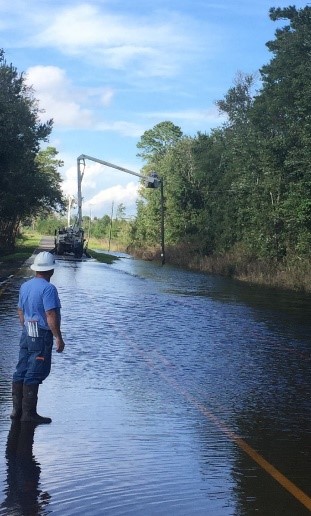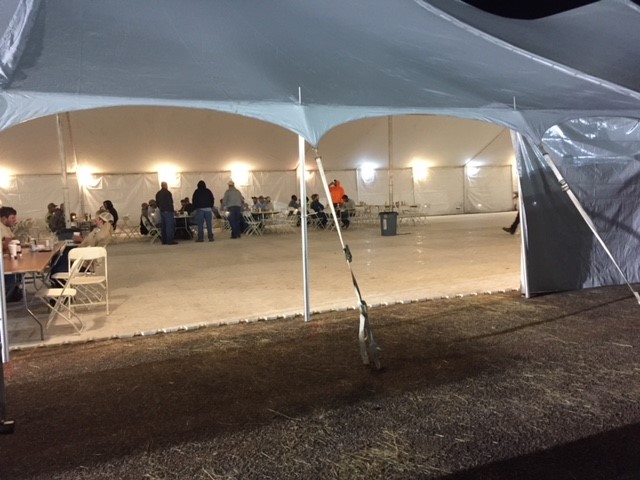Concerned about your energy costs? There are some simple steps you can take to reduce the amount of electricity you’re using. But first, let’s take a look at the terms Kilowatt and Kilowatt Hours.
Watt (W): The amount of energy required to operate an electric device. A light bulb is rated in WATTS – 60 WATT, 75 WATT, etc.
Kilowatt (KW): A 100 WATT bulb in your home consumes “X” amount of WATTS. When it consumes 1000 WATTS, it has used 1 Kilowatt.
Kilowatt Hour (KWH): If you have ten, 100 WATT bulbs operating in your home for one hour, they will consume 1,000 WATTS in one hour, or 1 Kilowatt Hour.
Charges for electricity is in KILOWATT HOURS (along with other charges such as Customer Charge, TVA Fuel Cost Adjustment, security light(s), etc.).
Electrical equipment has a data plate indicating WATTS consumed.
Example: Water heaters are the second largest energy expense in your home, after space heating and cooling. A 50-gallon water heater consumes 4,500 WATTS. To determine your approximate cost for that equipment, divide 4,500 WATTS by 1,000 (1 Kilowatt) and it consumes 4.5 Kilowatts. At ten cents per KILOWATT HOUR, the operating cost would be 45 cents if used for one hour. Installing a new electric water heater? Check out the UCEMC Water Heater Rebate Program.
Conserving Energy
Lighting: Install compact fluorescent lights (CFLs). CFLs are a good choice for home lighting because they use less energy than incandescent bulbs, produce the same light output, and last up to 10 times longer. Each bulb can save $40 or more in electricity costs over its lifetime.
Water Heaters: Set your water heater thermostat to the “normal” setting or 120 degrees, unless the owner’s manual for your dishwasher requires a higher setting. Savings are 7-11 percent of water-heating costs. Make sure you turn off the breaker to your water heater before opening the panels. Insulate the first five feet of pipe coming out of the top of your water heater, or the whole length until the pipe goes into the wall, if that is less than five feet.
Seal the leaks: Caulk and weatherstrip around windows and doors to stop leaks. Look for places where you have pipes, vents, or electrical conduits that go through the wall, ceiling, or floor. Check the bathroom, underneath the kitchen sink, pipes inside a closet, etc. If you find gaps around the pipes or vents, seal them up with canned foam insulation which is available at any hardware store.
Winter thermostat 68 degrees (or lower): Every degree of setback for eight hours a day can reduce heating bills by 1-3%.
Summer thermostat 78 degrees (or higher): Every degree you raise your thermostat for eight hours a day can reduce cooling bills by 3-5%.
Replace filters: Dirty filters on your heating and cooling systems restricts airflow and increases energy use. Keeping the unit clean, lubricated, and properly adjusted will reduce energy use. Savings are up to 5 percent of heating and cooling costs. An easy way to remember – replace your filter when you receive your monthly electric bill.
For more tips visit EnergyRight.com









 Upper Cumberland Electric Membership Corporation was one of 20 co-ops in Tennessee rushing crews of more than 185 volunteer line workers and equipment to affected areas in the wake of Florence and Michael. Their mission was clear: Restore power to nearly two million storm victims who couldn’t begin to rebuild their lives without it.
Upper Cumberland Electric Membership Corporation was one of 20 co-ops in Tennessee rushing crews of more than 185 volunteer line workers and equipment to affected areas in the wake of Florence and Michael. Their mission was clear: Restore power to nearly two million storm victims who couldn’t begin to rebuild their lives without it.

 Everyone made it back to UCEMC safely and with many stories to tell about the amazing and brave people they met along the way. People who were once strangers, but are now new friends.
Everyone made it back to UCEMC safely and with many stories to tell about the amazing and brave people they met along the way. People who were once strangers, but are now new friends.